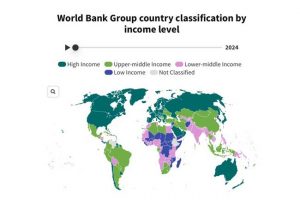Sri Lanka – Controversial Online Safety Bill passed at Parliament

Colombo (Asia News) – The Online Safety Bill was passed in the Parliament of Sri Lanka with a majority MPs supporting the bill, despite unconstitutional claims, despite the Opposition claiming that the amendments proposed were not consistent with the Supreme Court’s determination.
After the debate on the second reading of the Security of Online Mechanisms Act, the bill was passed by a majority of 46 votes with 108 votes in favor. Only 62 votes were cast against the bill.
Human Rights activists, Media Organizations and Civil Society Organizations say that the passage of this bill is a “death blow to democracy” in the country.
“Greatly it will affect to the forth coming elections in this year. The government is trying to crack down on dissent and stifle freedom of speech ahead of parliamentary and presidential elections this year.”” they stressed.
Under the Online Safety Bill, content creators deemed to be posting “illegal” material by a five-member commission will be punished with jail sentences. It also holds companies such as Google, Facebook and X accountable for content posted on their platforms.
Human Rights Watch criticised the bill, warning that members of the Online Safety Commission would have arbitrary powers to “decide what online speech is ‘false’ or ‘harmful’, remove content, restrict and prohibit internet access, and prosecute individuals and organizations”.
Offenses under the bill carry hefty fines and prison sentences of up to five years, the international rights group said.
MP Harsha de Silva, told parliament the legislation was “a threat to our democracy”.
Harsha de Silva, a MP from the main opposition Samagi Jana Balawegaya, told “This will have a severe negative impact on expanding e-commerce in Sri Lanka, to provide jobs to our youth and help our economy, which is in desperate need of growth.”
The Asian Internet Coalition (AIC), which has Apple, Amazon, Google and Yahoo as members, warned that the bill was a “draconian system to stifle dissent”, and said it “could undermine the potential growth of Sri Lanka’s digital economy”.
“We unequivocally stand by our position that the Online Safety Bill, in its current form, is unworkable and would undermine potential growth and foreign direct investment into Sri Lanka’s digital economy,” the AIC said in a statement.
The United Nations condemned the president’s “misuse of emergency measures”, saying they impinged “on the legitimate exercise of the rights to freedom of peaceful assembly and expression”.
The secretary of the Sri Lanka Professional Web Journalists Association, Kalum Shivantha, said the bill would severely impact how they do their job. “Online journalists might resort to self-censorship and even our news websites might get shut down,” he said.
Sri Lanka’s presidential election is set to be held later this year.
When the bill was to be announced as passed, Opposition MP M.A. Sumanthiran highlighted that the government’s amendments were inconsistent with the Supreme Court’s determination.
Despite the Opposition’s concerns, the government announced it would proceed with the proposed Bill as the Attorney General had approved the amendments.
A tense situation then arose in Parliament, where Opposition MPs protested the government’s move, but the government disregarded the protest and announced the revised amendments and that the Bill had been passed in parliament.
END.









